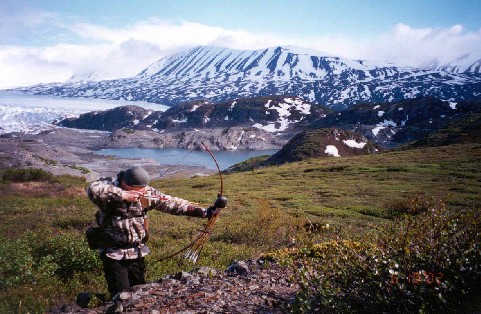Ethical Land Use and Hunters

Responsible hunters respect the land they use.
Photo: Steve Hohensee
The Great Wild - for how long?
Alaska represents one of the few places left in the world where nature is still wild and where the quality of hunting remains close to what it has been for hundreds of years. Unfortunately some hunters fail to minimize their impacts and degrade the land and experience for those who follow. How do your outdoor ethics compare?
Think of the last time you went hunting and ask yourself: Have I been leaving the hunting grounds as natural as possible? Have I ...
... left trash lying around?
... left behind TP flowers?
... failed to secure my food and trash from animals?
... limbed, cut or scarred any standing trees?
... disposed of bones or guts nearby such that animals will be conditioned to check the campsite?
... left flagging in trees or shells/cartridges on the ground?
... created new ATV routes or trails that will invite further use and increased impacts?
... built and left behind fire rings, wood piles, benches or other structures that will lead to a newly hardened site?
... remained silent when my partners impacted the land?
A hunter with strong outdoors ethics will answer all of these questions “No.” If you can answer “Yes” to any of these, we ask that you strive for a higher standard of conduct to improve your legacy. It only takes one bad camp to ruin the reputation of all hunters.
It is essential that hunters cultivate their own strong outdoors ethics and encourage their colleagues to do the same.

